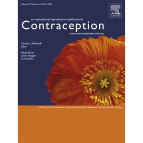 Objectives
Objectives
The aim of this survey was to understand US women’s contraception journey from her first prescribed method to her current one including reasons for choosing and stopping/switching methods, healthcare provider relationships, and bleeding preferences.
Study design
We administered a nationally-representative, web-based survey of US women aged 16 to 50 years currently using (N=1656) or had previously used (N=1448) prescription contraception, or who had never used it but would consider using it in the future (N=103). Statistical analyses were based on overlap formulae with sample weights adjusted to 2010 US census demographic benchmarks.
Results
The survey was sent to 11,906 women, and 5957 responded (50% response rate). Among qualified respondents, 3104 had experience with prescription contraception. Oral contraceptives (OC) remain the most frequently prescribed method as first or subsequent contraception.
However, as women switch to their current prescription method, more chose IUD contraception. As reported by respondents, only 48% of current users received counseling on how to use specific methods, and 58% were counseled on bleeding patterns to expect, while 67% were offered counseling on potential side effects.
Many of the side effects reported in this study for first and current prescription contraception were nonspecific and may be related to a nocebo effect, lack of understanding about normal bodily fluctuations, or poor compliance. Many women (34%) reported ‘making their periods lighter' as a reason for using their current prescription method, and 53% would prefer to skip their monthly period altogether.
Conclusions
Misperceptions about contraception are common, and prescription contraception choice can be quite complex. Clinicians can enhance patient satisfaction by providing adequate information and matching methods to women’s lifestyles, reproductive choices, and pregnancy risk.
Implications
This study provides insight into modern women’s attitudes and views toward prescription contraception that may be important to clinicians and women themselves.
Anita L. Nelson, Stephen Cohen, Alex Galitsky, Mark Hathaway, Dale Kappus, Majid Kerolous, Kiren Patel, Linda Dominguez
Contraception, 2018 Mar; 97(3):256−273.
DOI: https://doi.org/10.1016/j.contraception.2017.09.010














